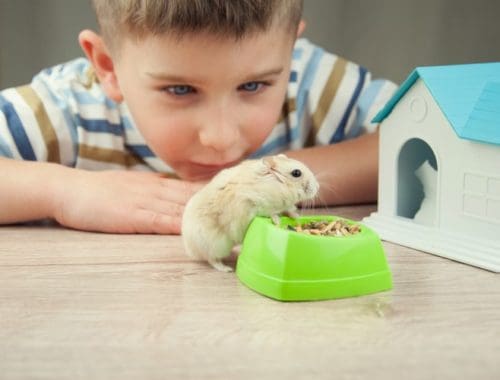In some ways, homeowners have it easy — they’re free to remodel, repaint, and bring in pets as they wish (and as their lifestyle allows). But as a renter, there’s more to consider before adopting a pet from the shelter, starting with the limited availability of pet-friendly apartments all the way to what happens when you move out. Before you bring home your new furry roommate, let’s walk through your decision-making factors:
Housing Availability 
Property managers typically don’t like tenants who make messes, don’t clean up after themselves, are noisy, and damage the apartment. But essentially, that’s what your little buddy is going to be, and that’s why many buildings don’t allow pets, making your pool of potential homes a bit shallower. For example, there are currently more than 900 apartments in Milwaukee — but when you add filters for dog- and cat-friendly places, that narrows to just 281.
If you already have a lease and are hoping to bring a pet into your home, read over the lease for their pet policy and contact the property manager to see if they’re willing to bend the rules for a reliable, trusted tenant. Whatever you do, don’t try to hide a pet.
Cost
To account for the added risk that pets bring — soiled carpets, scratched door frames, torn screens — almost all apartment buildings ask for either a pet deposit, which is an additional security deposit, or a monthly pet rent, which typically ranges from $5 to $20 but can add up over the course of the year. In some cases, property managers ask for both.
Location
Cats shouldn’t be left outdoors, so location isn’t a huge concern for cat owners. But if you have (or are hoping to get) a dog, scout your city for apartments that are near trails and/or dog parks. Dogs need plenty of exercise to stay healthy and happy, and that’s difficult to accomplish in a small apartment. If you can’t find one in a neighborhood you’d like to live in, commit to packing up your pup and hitting to road to make a few trips to the dog park every week.
Breeds
You’ve probably already guessed that a Bernese mountain dog is probably not a great fit for your studio, but there are breeds, both large and small, that aren’t suited to apartment life. If you’re hoping for a small breed, terriers, bulldogs, pugs, and the cavalier King Charles spaniel are some of the best dogs for apartments. Medium and even large breeds aren’t out of the question, either: Greyhounds, great danes, and mastiffs are low-energy enough to get their exercise needs met with a walk or two a day. What’s most important is that you research the breeds you’re interested in to make sure you pick a best friend that is compatible with both your home and your lifestyle.
Somewhat more surprisingly, not every cat breed is a good match for apartment life either. High-energy cats need space to roam, hide, and run, making them not a great fit for most renters. But If you combine a low-energy breed — such as a Persian, ragdoll, or British shorthair — with some interactive toys and daily playtime, your cat should be happy and satisfied.
Preparation
If you’re getting a cat, there are a host of great products to keep your cat happy and your apartment unscathed. For example, you’ll want to have a scratching post, toys, and a litter box mat right away, and then you can get to know your pet a bit more to learn if you’ll need scratch shields or sticky tape to keep them off of certain surfaces. Dogs also require plenty of toys, as well as a leash, a nail trimmer, and a kennel.
Rid your home of any potential poisons your pet could get into — including toxic plants, such as azaleas and tulips — and keep other harmful materials well out of reach.
Packing Up
When it’s time for you and your pet to move on to your next place, you’ll have quite a bit of cleaning up to do, and there’s a good chance your pet deposit is nonrefundable. Throughout your lease, stay on top of damage and messes that your pet creates, and do your best to clean the carpets and the cat hair yourself before leaving it to your property manager.
You and your pet can have a lease full of happiness together — as long as you prepare adequately and are realistic about your housing expectations. Above all, think about what’s best for your potential pet. If you can’t give them the space and time they deserve, wait until your circumstances allow it.
































